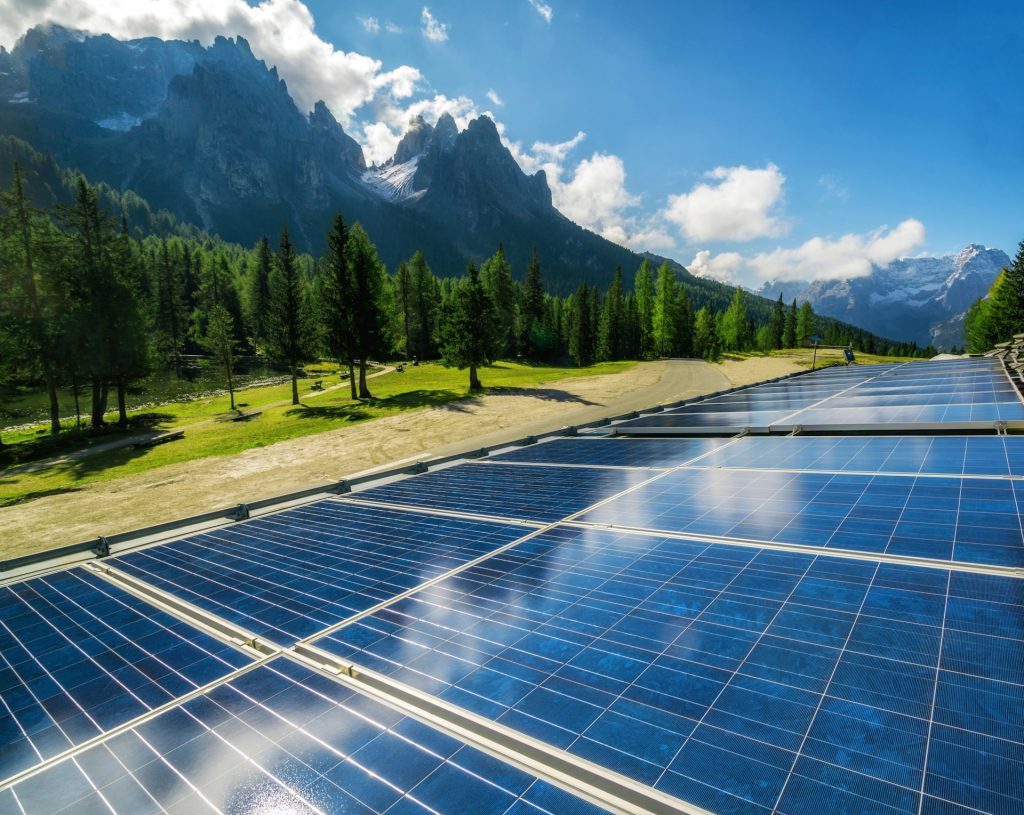
Solar power is an excellent way to help the environment. By using energy from the sun, we can reduce our carbon footprint and make the world a cleaner place. Solar energy is renewable, which means it doesn’t run out like fossil fuels do. This makes it a smart choice for a sustainable future.
Switching to solar power can also reduce air pollution and promote sustainable land use. By using rooftops and other unused spaces for solar panels, we can generate electricity without harming the environment. Solar power offers many benefits, making it a great option for anyone looking to make a positive impact on the planet.
Reducing Greenhouse Gas Emissions
Solar power is one of the best ways to reduce greenhouse gas emissions. These gases, like carbon dioxide and methane, trap heat in the atmosphere and contribute to global warming. Traditional power plants that burn coal, oil, and natural gas are major sources of these emissions. By switching to solar energy, we can significantly cut down on the amount of harmful gases released into the air.
Solar panels generate electricity without burning fossil fuels. Instead, they use sunlight, which is a clean and renewable energy source. When you use solar power, you directly reduce the demand for electricity from fossil fuel power plants. This translates to fewer greenhouse gases being released into the atmosphere.
Reducing greenhouse gas emissions helps slow down climate change and its harmful effects. It can lead to fewer extreme weather events, less sea level rise, and better air quality. By choosing solar power, you can play a part in protecting the planet for future generations. It’s a simple yet effective way to make a positive environmental impact.
Conserving Water Resources
Water is a precious resource, and conserving it is important for the environment. Traditional power plants, like those that burn coal or natural gas, use a lot of water to produce electricity. They need water to cool down their machinery and for other processes. This water comes from local rivers, lakes, and reservoirs, which can put a strain on these sources, especially in areas that already face water shortages.
Solar power, on the other hand, does not require water to generate electricity. Solar panels convert sunlight directly into electricity without using water at all. By using solar energy, we can save large amounts of water that would otherwise be used by traditional power plants. This makes solar power an excellent choice for conserving water resources.
Saving water helps support local ecosystems and ensures there is enough water for other important uses, like drinking water and agriculture. In regions prone to drought, conserving water is especially critical. By choosing solar power, you can help preserve this vital resource and contribute to a more sustainable future. Solar energy is a smart and environmentally friendly alternative that benefits both the planet and its inhabitants.
Decreasing Air Pollution
Air pollution is a major environmental issue that affects our health and the planet. Traditional power plants that burn fossil fuels release pollutants like sulphur dioxide, nitrogen oxides, and particulate matter into the air. These pollutants can cause respiratory problems, heart disease, and other health issues. They also contribute to the formation of smog and acid rain, which harm the environment.
Solar power offers a clean alternative. Solar panels generate electricity without releasing any pollutants into the air. By using solar energy, we can reduce our reliance on fossil fuels and decrease the amount of harmful pollutants in the atmosphere. This leads to cleaner air and a healthier environment.
Choosing solar power helps improve air quality, making it safer for everyone to breathe. It also reduces the environmental damage caused by air pollution. Solar energy not only benefits you and your home but also has a positive impact on your community and the planet. By adopting solar power, you can help create a cleaner and healthier world.
Promoting Sustainable Land Use
Using land sustainably is important for protecting natural habitats and preserving our environment. Traditional power plants and fossil fuel extraction can take up large areas of land and disrupt local ecosystems. Mining for coal or drilling for oil can destroy habitats, harm wildlife, and lead to soil erosion.
Solar power promotes more sustainable land use. Solar panels can be installed on rooftops, over car parks, and in other unused spaces, making them a smart choice for generating electricity without taking up valuable land. Solar farms can also be placed on lands that aren’t suitable for agriculture or urban development, ensuring that the land is used efficiently.
Using solar power helps preserve natural habitats and reduces the pressure on land resources. It allows for the generation of electricity without compromising the environment. By choosing solar energy, we can promote responsible land use and protect the natural world. This makes solar power a great option for anyone looking to make a positive impact on land conservation.
Conclusion
Solar power is an excellent choice for anyone looking to help the environment. It reduces greenhouse gas emissions, conserves water resources, decreases air pollution, and promotes sustainable land use. Each of these benefits contributes to a healthier planet and a more sustainable future.
Switching to solar power not only helps you save on electricity bills but also allows you to make a valuable contribution to protecting the environment. By using clean, renewable energy from the sun, you can reduce your carbon footprint and support a healthier planet for future generations. It’s a simple yet powerful way to make a difference.
If you’re interested in learning more about how residential solar power can benefit the environment and your home, contact Inspire Energy today. Our team is ready to help you make the switch to solar and start enjoying the many benefits it offers. Let’s work together to create a cleaner, greener world with the power of the sun!
